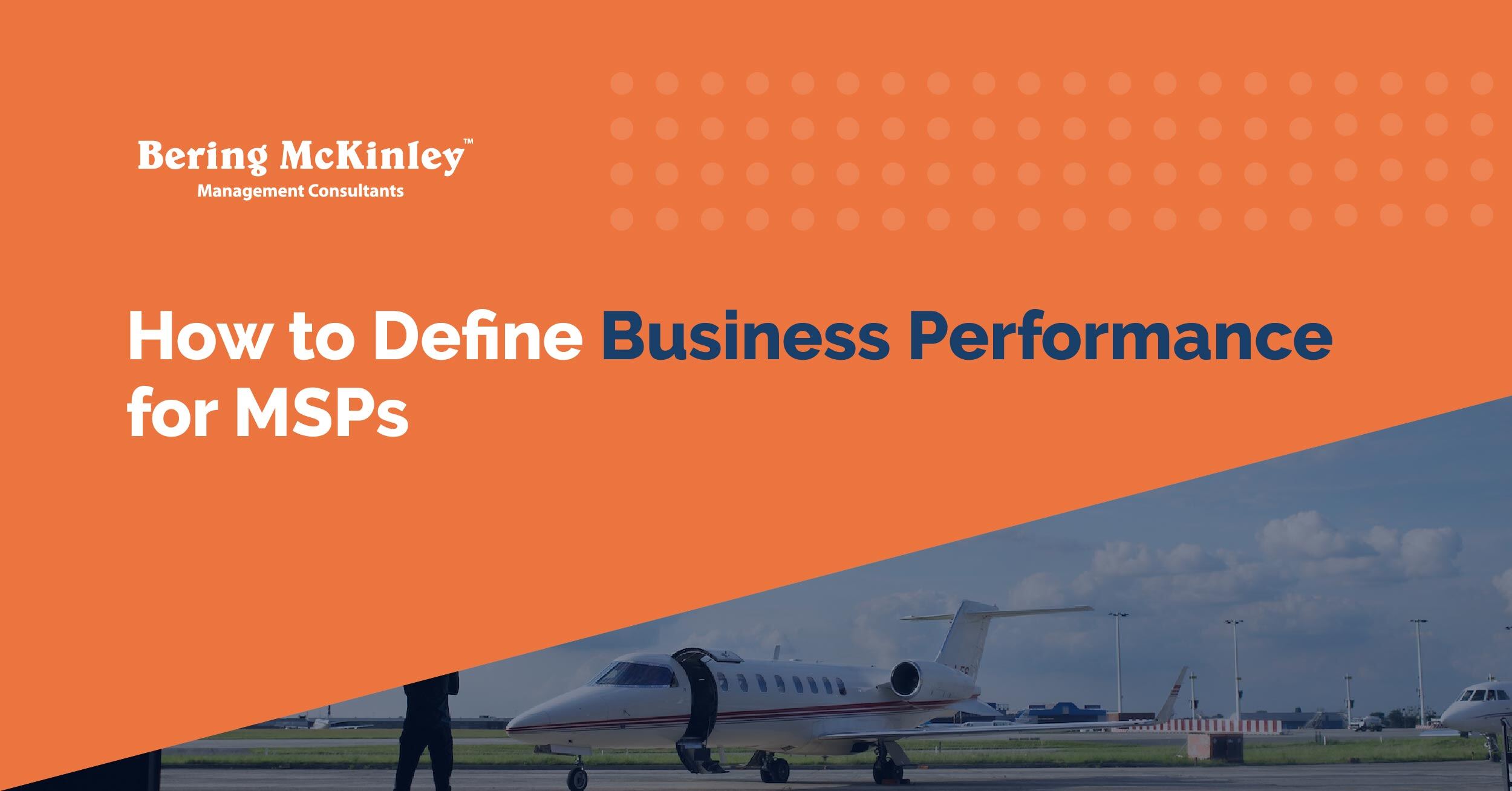Beyond the Basics: Advanced Techniques for Measuring Business Performance
When it comes to running a successful business, one thing is indisputable: you can’t improve what you don’t measure. Basic metrics like revenue,...
3 min read
 Josh Peterson
:
Updated on May 19, 2025
Josh Peterson
:
Updated on May 19, 2025

Business success is often dictated by how well an organization understands its data and uses it to make informed decisions. For Managed Service Providers (MSPs) and other businesses, business performance analysis serves as the bridge connecting data-driven insights with smarter, more effective budgeting, and forecasting processes.
But how exactly does performance analysis guide strategic business decisions? And how can business owners and financial analysts leverage it to maximize efficiency and improve profitability?
This comprehensive guide will walk you through the importance of business performance analysis, its role in budgeting and forecasting, and actionable steps to unlock its full potential.
Business performance analysis involves studying key metrics and operational data to assess how effectively a company is meeting its objectives. It evaluates past trends, identifies current challenges, and uncovers opportunities for growth.
Key components of performance analysis include financial performance, resource allocation, customer engagement, and employee productivity.
For MSPs, tracking the right KPIs is essential to drive growth and customer satisfaction. Here are some KPIs to focus on:
Efficient data collection and analysis require the right tools. For MSPs, commonly used platforms include:
Budgeting is the art of allocating resources effectively to meet both immediate needs and long-term goals. Business performance analysis provides the historical and real-time context required to build accurate and achievable budgets.
By analyzing past data, businesses can identify seasonal trends, understand purchasing behaviors, and evaluate which areas are generating the highest returns. This helps create budgets that are realistic and aligned with actual performance trends.
Performance analysis helps spot inefficiencies, such as underperforming marketing campaigns or unnecessary operational expenses. With these insights, businesses can reduce costs and increase profitability without sacrificing quality.
Knowing which areas of the business are the most, or least, efficient enables smarter allocation of resources. For instance, an MSP seeing growth in managed services might allocate additional budget toward hiring or marketing those services.
Effective forecasting goes beyond predicting financial outcomes. It provides actionable insights that help businesses adapt to changing conditions. Performance analysis acts as the backbone for improving forecast accuracy.
Analyzing trends in customer acquisition rates, revenue growth, and market demand ensures forecasts are more precise, reducing the risk of over- or under-estimating.
Through thorough performance analysis, businesses can better anticipate risks, such as increased churn or changes in demand, and proactively address them. Similarly, identifying emerging opportunities allows for quicker capitalization.
Predictive analytics powered by AI-driven tools like BrightGauge and ConnectWise enables businesses to adjust their forecasts based on real-time performance metrics.
By integrating BrightGauge metrics into their decision-making, Casserly Consulting achieved streamlined reporting and improved budget accuracy, creating more focused financial strategies.
This MSP leveraged ConnectWise for performance analysis, leading to precise forecasting and resource allocation that directly boosted profitability by 30% over two years.
With insights from Bering McKinley’s consulting services, Technical Doctor LLC optimized its team’s efficiency, leading to better budget management and increased customer satisfaction scores.
Define what success looks like for your organization. Whether it’s reducing operational costs or increasing revenue, setting actionable goals ensures focus.
Team members should understand the importance of KPIs and tools for performance analysis. Adequate training ensures your team uses these tools effectively.
Business needs evolve, and so should your performance analysis processes. Commit to quarterly reviews to refine strategies and implement necessary updates.
Ensure your data is clean, consistent, and accurate. Platforms like QuickBooks can automate much of this process, reducing the risk of errors.
Invest in change management strategies, including detailed training sessions and clear communication about the benefits of adopting performance analysis practices.
Protecting sensitive information is non-negotiable. Use trusted platforms like ConnectWise to incorporate robust security measures and meet compliance standards.
Business performance analysis unlocks the door to smarter budgeting and accurate forecasting. By leveraging historical data and real-time insights, businesses can optimize operations, anticipate challenges, and seize opportunities.
At Bering McKinley, we specialize in helping MSPs implement performance analysis strategies that drive growth and profitability. Whether you’re just starting or looking to elevate your business processes, we’re here to guide you.
Get in touch with our experts today and discover how we can help your MSP achieve long-term success.

When it comes to running a successful business, one thing is indisputable: you can’t improve what you don’t measure. Basic metrics like revenue,...

Success in the managed service provider (MSP) industry relies on more than just delivering exceptional IT solutions. It demands relentless focus on...

How do you determine if your business is truly thriving, or if you’re just scraping by? For Managed Service Providers (MSPs), defining and measuring...